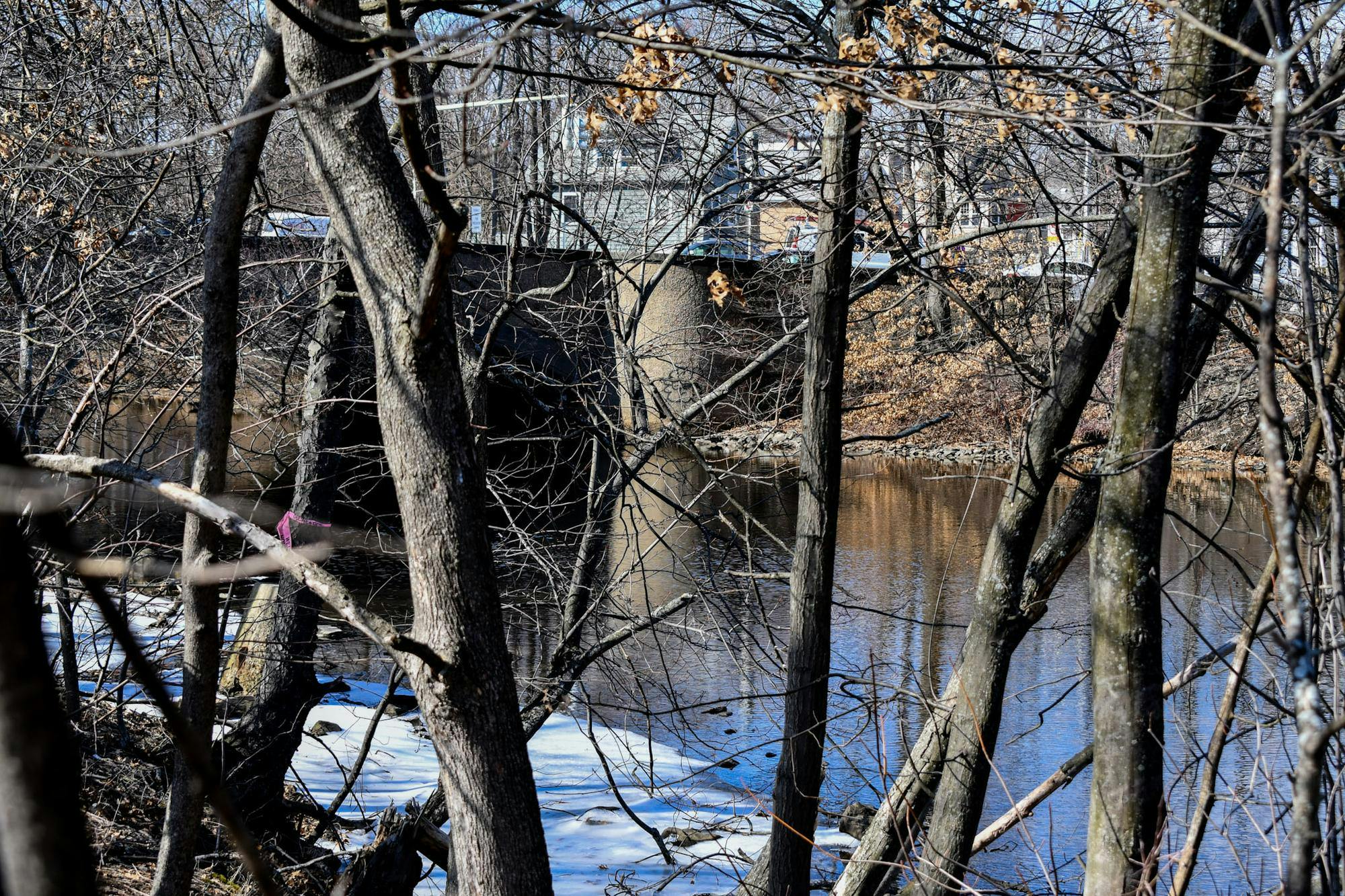On Nov. 2, the City of Medford broke ground on the half-mile Clippership Connector which will connect over 10 miles of preexisting greenways and bike paths which reach from Boston to as far north as Lynn. The path, expected to be completed by 2025, will be the culmination of over 10 years of work by the city and the Massachusetts Department of Conservation and Recreation, as well as multiple civil society organizations.
“The Clippership Connector is a critical missing link in the broad Mystic River Greenways (Mystic River Reservation) that will improve active transportation routes along the Mystic River and successfully connect with an extended network of paths,” David Queeley, deputy director of projects for the Mystic River Watershed Association, wrote in an email to the Daily.
The roughly half-mile path will run through Medford Square, Riverbend Park and McGlynn Elementary School.
“The Mystic River Watershed Association is leading this vision and creating a roadmap to transforming these waterfront parklands with full participation from area residents,” Queeley wrote. “A high-quality network of greenways for active transportation and recreation will enhance climate resiliency, provide sustainable mobility, and improve physical and mental health outcomes for the more than 600,000 residents of the watershed.”
Alicia Hunt, Medford’s director of the Office of Planning, Development and Sustainability, is the liaison between MyRWA, WalkMedford and the Massachusetts Department of Conservation and Recreation, all of which played an important role in the path’s development.
The path was funded via a partnership grant in which a portion of the upfront cost is put forward by an organization or community in order to incentivize the state to take action. According to Hunt, the Lawrence and Lillian Solomon Foundation — an organization dedicated to promoting the value of public green spaces — took interest and brought on a landscape designer to begin the idea process.
“[There is] an amazing amount of land and space in Massachusetts,” Hunt said. “So for [the state] to pay attention to this half-mile rather than any other half-mile in the state, somebody needed to get their attention.”
Hunt noted that while most of the path’s planned footprint is state-owned land, easements were granted by the Medford Housing Authority, the City of Medford and one private owner in order for it to be constructed.
“The state owns it, the state is building it and the state will maintain it,” Hunt said.
In addition to the Solomon Foundation, the project is supported by organizations WalkMedford and the Cummings Foundation, founded by a Tufts graduate.
State Representative Christine Barber, who helped to secure funding for the project, stressed the importance of sustainable development. In her eyes, MyRWA’s larger Mystic Greenways initiative — including the Clippership Connector — is an important alternative to public transportation development.
“We live in a dense urban environment. We can’t all be in our cars, and with addressing climate change, we need to find other ways to get where we’re going,” Barber said. “We have the Green Line extension … which is great, but doesn’t go everywhere. … Having paths that take you along the river is appealing, but is also safer when you’re not battling cars.”
Hunt has long grappled with ensuring that sustainable development is inclusive to those of different socioeconomic status.
“When you make things nicer and better and more accessible, that makes them more valuable, and now they’re more expensive,” Hunt said. “It raises the price of housing and of living around it. It’s a really difficult conundrum that people in my field have been dealing with for a long time.”
Still, Hunt does not believe the solution is to back away from projects like the Clippership Connector.
“In my mind, what you have to do is just bring the accessibility everywhere, so there aren’t ‘haves’ and ‘have nots’ but everybody gets better access, more bike lanes, access to bike paths, stuff like that,” Hunt said.
Barber hopes to combine legislation like her state bill providing cheaper MBTA bus rides and the recently passed MBTA Communities Law, which mandates multifamily housing in areas surrounding transit stops, to achieve her vision of inclusive sustainable development.
“Anything we can do to address climate change, quality of life and transportation is really critical,” Barber said. “So this project and others like it are the things we need to keep doing to keep moving in that direction. It was an incredible partnership, and really, a lot of groups came together to make this happen.”






